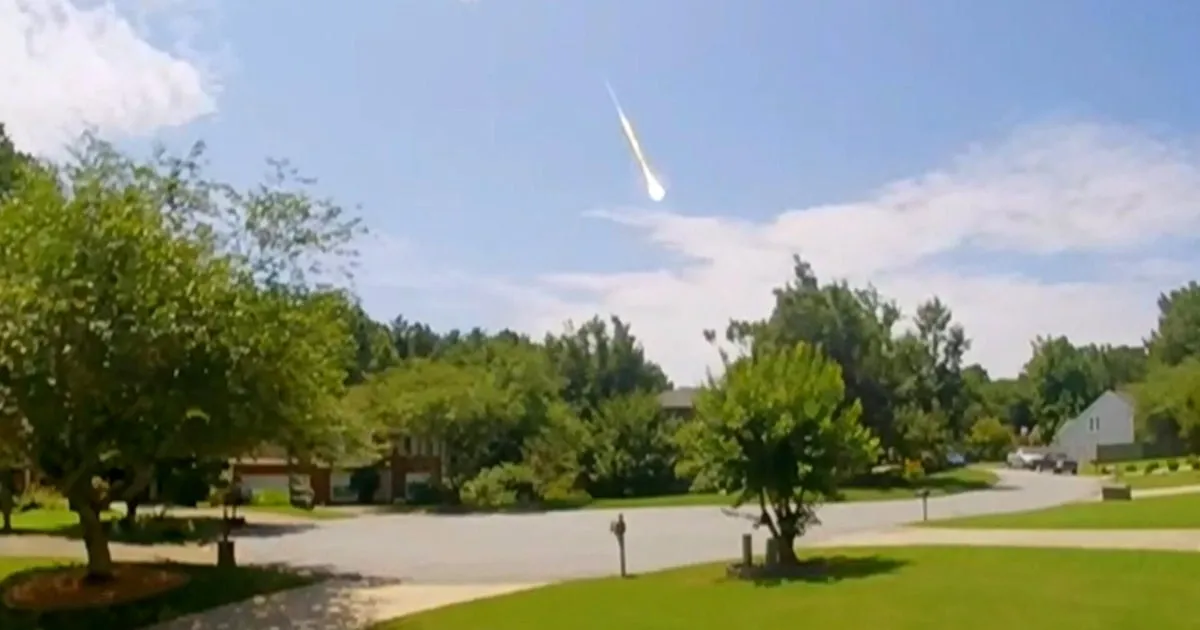
A remarkable discovery was made when a meteorite crashed through the roof of a home in Georgia earlier this summer. Scientists revealed that this space rock is older than Earth itself. The incident occurred on June 26, when a mysterious fireball blazed across the sky in broad daylight, prompting hundreds of sighting reports from residents in both Georgia and South Carolina.
According to NASA, the meteor exploded over Georgia, producing loud booms that were heard by many in the vicinity. University of Georgia planetary geologist, Scott Harris, examined the fragments of this extraordinary meteorite. He reported that he analyzed 23 grams of meteorite fragments collected from a piece that was approximately the size of a cherry tomato. This fragment struck a man's roof with incredible force, creating a dent in the floor of the home located just outside Atlanta.
Scott Harris explained that the meteorite has a significant history that predates its entry into Earth's atmosphere. Upon examining the fragments under powerful microscopes, Harris concluded that the meteorite formed around 4.56 billion years ago, making it roughly 20 million years older than our planet. This ancient rock is believed to originate from a group of asteroids located in the main asteroid belt between Mars and Jupiter. Harris noted that these asteroids are thought to be linked to the breakup of a much larger asteroid approximately 470 million years ago.
The homeowner, still captivated by the event, mentioned to Harris that he's been finding specks of space dust around his living room since the collision. In light of this significant find, Harris, along with scientists from the University of Georgia and Arizona State University, plans to submit their findings to the Nomenclature Committee of the Meteoritical Society. They propose naming the meteorite the McDonough Meteorite, in honor of the Georgia city where it made its dramatic entrance.
This meteorite is notable as it marks the 27th meteorite recovered in Georgia and the sixth witnessed fall. Scott Harris pointed out that such events were once expected to occur only once every few decades, but advancements in modern technology, coupled with a vigilant public, have increased the frequency of meteorite recoveries. “We are likely to discover more and more meteorites in the future,” he said, highlighting the intersection of community awareness and scientific progress.